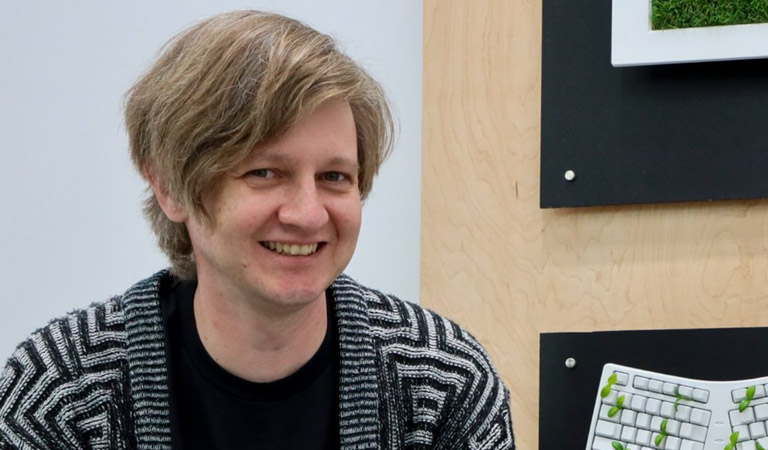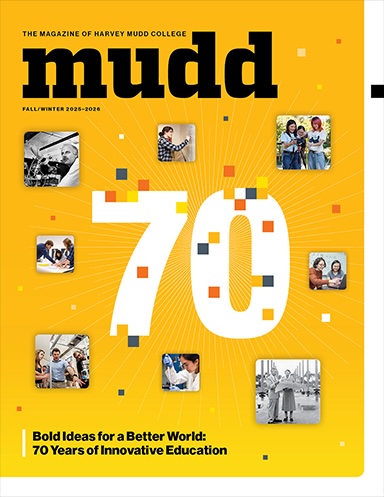Students Gain Access to More Programming Languages Resources
September 25, 2025
Computer programming languages are the instructions that power technologies relied on every day by billions of people. Lucas Bang, associate professor of computer science at Harvey Mudd College, is helping students gain access to learning and networking opportunities in this field.
Bang is the recipient of a three-year, $45,000 grant from the National Science Foundation, an award that funds travel, lodging and registration costs for as many as 10 students per year to attend international workshops in programming languages research.
This year’s conference, the Programming Languages Mentoring Workshop, will be held in Singapore in October. It’s being offered in conjunction with the ACM SIGPLAN International Conference on Systems, Programming, Languages and Applications: Software for Humanity (SPLASH).
The travel scholarships are targeted to U.S. college seniors and first-year graduate students. Attendees are able to immerse themselves in cutting-edge research and build professional connections.
“It will be a great opportunity for students to hear keynote talks from famous researchers and to interact with each other,” says Bang, who has been a panelist and mentor at previous events. “We try to get a mix of people from academia, as well as government and industry labs.
“Researchers are talking about the latest and greatest results in programming languages, implementation theory and design,” he adds. “Students will get to connect with graduate school advisers and build community. It’s a very positive experience.”
The Singapore workshop will explore a new source of programming languages: artificial intelligence. “We’ve now got AI systems generating code,” Bang says.
Bang teaches programming languages at Harvey Mudd. “I try to demystify how programming works under the hood,” he says. While new languages pop up frequently, the principles behind them are relatively stable. “If you understand the principles, you can approach almost any language with confidence.”
Programming language dates back to the 19th century, when English mathematician Charles Babbage came up with the idea of a digital programmable computer. It was fellow English mathematician Ada Lovelace who considered potential applications of their so-called “analytical engine.” The engine was never built and remained a concept.
“Some languages are popular and hang on, and there are lots of new languages that people are talking about, such as Rust,” Bang says. “It’s really good for creating safe systems that don’t have security flaws. Basically, all modern technology uses some programming language.”
